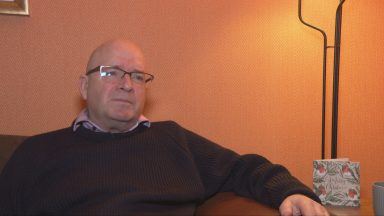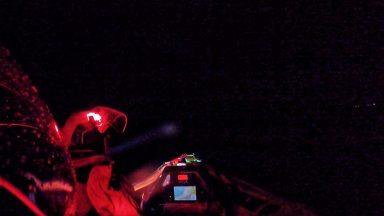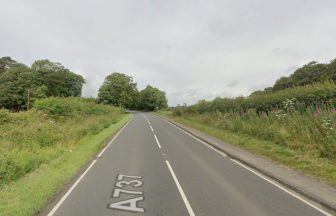Scientists in Glasgow are set to test out 6G communications, said to be up to 50 times faster than 5G.
The University of Glasgow is building a world-leading facility to test 6G after securing a £2.6m equipment grant.
The facility will be the first of its kind in the world to test prototype devices’ ability to process the complex signals and waveforms underpinning 6G.
Researchers from the university’s James Watt School of Engineering will develop a ‘test cluster’ when works begins on the two-year project in January.
The suite of instruments will be capable of probing the features of new devices which will enable ultrafast digital communication – up to 50 times faster than 5G.
Professor Edward Wasige, of the James Watt School of Engineering, is the project’s principal investigator.
He said: “6G communications networks are expected to be commercially available by 2030, and to deliver transformative benefits beyond the already remarkable capabilities of 5G.
“However, there is still a great deal of work to be done to develop the infrastructure, spectrum and protocols that will support data transfer at the speeds of 1.1 terahertz and beyond to deliver 6G.
“Our new facility will play a key role in supporting the development of the technology which will underpin the next generation of wireless communications.”
The university will expand the existing Microwave and Terahertz research lab at its Electronic Systems Design Centre with new equipment.
The plans have been backed by the Engineering and Physical Sciences Research Council (EPSRC).
Professor David Cumming, Head of the James Watt School of Engineering, said: “Colleagues from across the School are developing world-leading technologies in wireless communications, optical networking and fibre-optics, millimetre-waves and ultrafast terahertz wireless links.
“Their expertise has made it possible for the School to win this significant new grant that will support excellent research in the years ahead.
“We’re proud to be working at the leading edge of this exciting technology to help deliver the predicted capabilities of 6G in areas like low-carbon growth, self-driving vehicles and artificial intelligence.”
Dr Chong Li, director of the Electronic Systems Design Centre (ESDC), said: “Our Microwave and Terahertz research lab has played a key role in the development of cutting-edge communications systems since it was established in 2006.
“It has generated more than £40m in grant funding and involved more than 80 PhD students and we are confident that this new test cluster will be equally vital in supporting cutting-edge research and development, as well as the education of the next generation of engineers.”
EPSRC Director for Research Base Jane Nicholson said: “Supported by EPSRC, this world-first facility will play an important role in laying the groundwork for future 6G communications systems.
“Building on the UK’s excellent research in digital technologies, these new systems will underpin many aspects of life, helping to transform society and deliver prosperity.”
Paul Coffey, CEO of The Scotland 5G Centre, said: “This is an outstanding achievement for the University of Glasgow.
“5G is game-changer technology, which is revolutionising digital services and enabling communities to embrace digital connectivity and so too will 6G.
“The Scotland 5G Centre is delighted to support this project through funding the 5G Testbed, allowing further developments and research to be carried out in this field.”
Follow STV News on WhatsApp
Scan the QR code on your mobile device for all the latest news from around the country


 iStock
iStock























